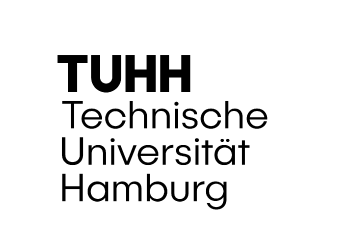Namibia and Germany: The Case of Green Hydrogen in the Context of Sustainability Challenges
Namibia and Germany: The Case of Green Hydrogen in the Context of Sustainability Challenges
- SDG 7 – Bezahlbare und saubere Energie
- Challenge
- 3 ECTS
- 90 h
- Synchron - Service-Learning
- kostenlos
#sdg4, #sdg7, #sdg17, #globalsouth, #namibia, #wickedproblems, #germany, #gh2 #GreenHydrogen
Das wirst Du lernen
After successfully completing the course, you will be able to:
- recall and deliver basic facts on Namibia and German-Namibian relationship, especially with focus on sustainability challenges.
- identify and describe measures and initiatives that deal with challenges of sustainable development on different levels of society.
- reproduce the basic facts about Green Hydrogen as a future technology, and its role in the Namibian-German relations.
- put the technology in a critical context with debates on Climate Justice and the role of indigenous people.
- relate the mutual history of Namibia and Germany to present day's relatsionship of both countries.
- able to work on possible ways to actively contribute to the ongoing debate on Green Hydrogen, together with fellow students.
- engage with experts and co-moderators in a well prepared and meaningful way. This includes the exploration of learning environments beyond the classroom (e.g. museum, research institute).
- work together in interdisciplinary and multi-cultural teams and to self-direct your learning process.
- You engage and communicate with Namibian and German partners in a mindful and productive way and to integrate diverse perspectives on sustainability issues.
Damit wirst Du Dich beschäftigen
The general goals and expected impact of this course are:
- Achievement of a deeper and nuanced understanding of Green Hydrogen and its role in Namibian-German relations.
- Raising of awareness for the complexitiy and dimensions of sustainability.
- Improvement of the understanding among nations and cultures.
So ist Dein Kurs aufgebaut
• Chapter 1 (2025-04-22): Get together for the SDGs!
• Chapter 2 (2025-05-06): The SDGs in Namibia and Germany: achievements and challenges
• Chapter 3 (2025-05-20): The case of Green Hydrogen: what and how?
• Chapter 4 (2025-05-27): Namibian-German relationship: mediating the past
• Chapter 5 (2025-06-03): Reparation, restitution and stolen artifacts
• Chapter 6 (2025-06-24): Indigenous Knowledge and Future Technologies
• Chapter 7 (2025-07-01): How to tackle complexity and taking action for the SDGs
• Chapter 8 (2025-07-15): Reflection, wrap-up, action and activities
• Submission (2025-08-15): Submission of an essay or alternative product/activity
So lernst Du
A self-directed and student-centered learning environment is provided. Working in groups and teams is suggested and supported. The course is considered blended learning, with digital learning material and face-to-face seminar sessions.
All seminar sessions (except Chapter 5) take place at:
University of Stuttgart
Centre for Higher Education and Lifelong Learning (zlw)
Azenbergstraße 16
Room 1.111
70174 Stuttgart, Germany
Students are expected to prepare the face-to-face sessions in advance by means of the learning management system Moodle (inverted classroom). Learning material will be provided.
During the seminar, several guests and speakers are expected to participate (depending on availability) remotely or on site. In some occasions, a visit to external learning environments are possible (e.g. Lindenmuseum, Institute of Energy Economics and Rational Energy Use).




